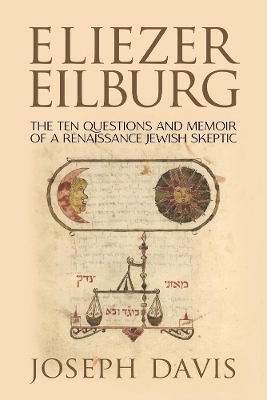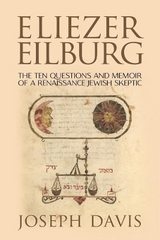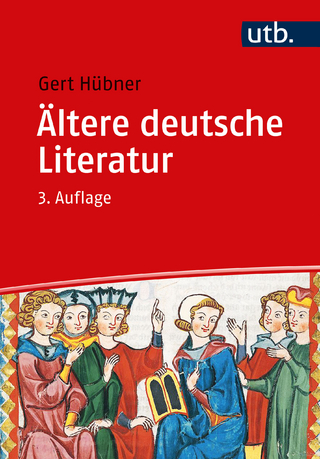
Heresies of a Renaissance Jew
The Ten Questions and Memoir of Eliezer Eilburg
Seiten
2017
Hebrew Union College Press,U.S. (Verlag)
978-0-8229-4505-5 (ISBN)
Hebrew Union College Press,U.S. (Verlag)
978-0-8229-4505-5 (ISBN)
- Titel erscheint in neuer Auflage
- Artikel merken
Zu diesem Artikel existiert eine Nachauflage
Includes two Hebrew texts from the Renaissance, published here for the first time, together with English translations. The first is a memoir of a German Jew, Eliezer Eilburg, a younger contemporary of Martin Luther. In the second text, The Ten Questions, Eilburg challenges nearly all of the Jewish beliefs of his time, and especially belief in the Bible.
This volume includes two Hebrew texts from the Renaissance, published here for the first time, together with English translations. The first is a memoir of a German Jew, Eliezer Eilburg, a younger contemporary of Martin Luther (who mentions Luther, although not in a complimentary way). Eilburg tells stories of how his family was driven from Germany, how his involvement in lawsuits in Poland, his imprisonment, and his study and practice of medicine in Italy. The story is interspersed with kabbalistic visions, including a vision of the ghost of the author's mother. The memoir is a fascinating and authentic vista into the world of the Renaissance Jew.
In the second text, The Ten Questions, Eilburg challenges nearly all of the Jewish beliefs of his time, and especially belief in the Bible. It is the most radical Jewish text of the sixteenth century, bar none. Eilburg's heretical doubts, a century before Spinoza, are a crucial link between the rationalism of medieval Jewish philosophy and the seventeenth and eighteenth century Enlightenment. The text sheds important new light on the Renaissance origins of modern Bible criticism.
This volume includes two Hebrew texts from the Renaissance, published here for the first time, together with English translations. The first is a memoir of a German Jew, Eliezer Eilburg, a younger contemporary of Martin Luther (who mentions Luther, although not in a complimentary way). Eilburg tells stories of how his family was driven from Germany, how his involvement in lawsuits in Poland, his imprisonment, and his study and practice of medicine in Italy. The story is interspersed with kabbalistic visions, including a vision of the ghost of the author's mother. The memoir is a fascinating and authentic vista into the world of the Renaissance Jew.
In the second text, The Ten Questions, Eilburg challenges nearly all of the Jewish beliefs of his time, and especially belief in the Bible. It is the most radical Jewish text of the sixteenth century, bar none. Eilburg's heretical doubts, a century before Spinoza, are a crucial link between the rationalism of medieval Jewish philosophy and the seventeenth and eighteenth century Enlightenment. The text sheds important new light on the Renaissance origins of modern Bible criticism.
Joseph M. Davis is associate professor of Jewish thought at Gratz College in Melrose Park, PA.
| Erscheinungsdatum | 02.01.2018 |
|---|---|
| Sprache | englisch |
| Maße | 152 x 229 mm |
| Themenwelt | Literatur ► Biografien / Erfahrungsberichte |
| Sachbuch/Ratgeber ► Geschichte / Politik | |
| Geschichte ► Allgemeine Geschichte ► Mittelalter | |
| Geschichte ► Allgemeine Geschichte ► Neuzeit (bis 1918) | |
| Geisteswissenschaften ► Geschichte ► Regional- / Ländergeschichte | |
| Geisteswissenschaften ► Religion / Theologie ► Judentum | |
| Sozialwissenschaften ► Soziologie ► Spezielle Soziologien | |
| ISBN-10 | 0-8229-4505-3 / 0822945053 |
| ISBN-13 | 978-0-8229-4505-5 / 9780822945055 |
| Zustand | Neuware |
| Haben Sie eine Frage zum Produkt? |
Mehr entdecken
aus dem Bereich
aus dem Bereich
eine neue Geschichte des Mittelalters
Buch | Hardcover (2023)
C.H.Beck (Verlag)
38,00 €



